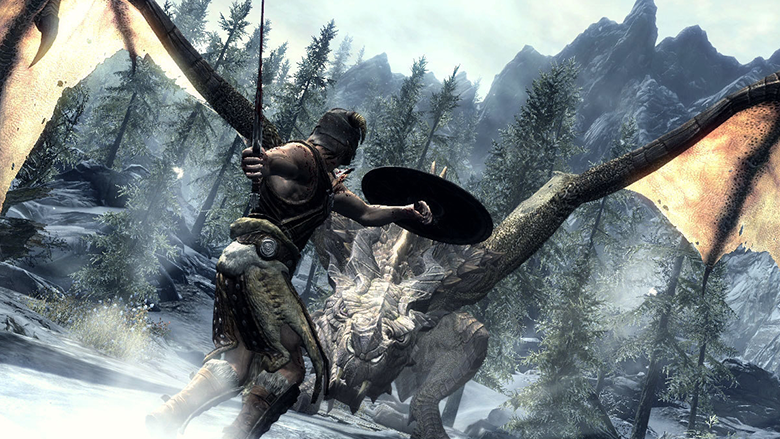Remastering Makes Sense in Ten Years After the Game’s Release
October 28 was marked by the release of The Elder Scrolls V: Skyrim Special Edition, which is actually the remaster of the namesake project that is already five years old. We discussed that with Alexander Kutekhov, Producer at Buka Entertainment, one of the largest Russian software developers and publishers.

Image Credit: The Elder Scrolls V: Skyrim Special Edition
So, Bethesda remastered Skyrim. Is it reasonable to remaster a game that’s relatively young?
There are two sides to this question – the publisher’s view and the player’s. According to our expertise (in recent years, Buka has re-released some of its old titles on Steam, and some on mobile devices), remastering makes sense in at least ten years after the game’s release.

Alexander Kutekhov
Why is that?
The game should spend some time out of the community’s attention so that one day people would find themselves missing it.
Moreover, a remaster is best associated with some important occasion. For instance, Syberia III is nearing its long anticipated release. With that in mind, we have remastered the previous games of the series. They are available both on Steam and mobile platforms.
As for Skyrim’s remaster, the community is actively discussing, mostly questioning its quality. The same was with Batman. Obviously, it’s not enough to simply tweak textures and lighting a little. Benoît Sokal himself had argued that a remaster should include optimization of the game for modern platforms. What do you think, how much can and should be remastered?
Remember I mentioned the two sides to the remastering issue? Here’s where they clash. The publishers’ plan is to invest the least they can, and gain as much as possible. As result, they often just update the game so that it could be launched on contemporary devices.
The players see everything differently. They are already familiar with the game, and their memories are dear to them, but at the same time, they have become more demanding. The players want more than just have good old fun; they anticipate new experiences and emotions.
What’s the right course of action? Judging by hundreds of annoyed reviews, Skyrim didn’t bring anything fresh, nor did Bioshock in September.
I only can relate to my own experience, which is porting and remastering of the Red Comrades series. We resorted to the “hybrid approach” – in addition to the update, we had rebuilt the project with Unity and added more detail to the backgrounds. We also had taken into account that the quality standards of both the market and the players had kept growing higher all that time. For those nostalgic about the original version, we left intact such features as classic controls, hardcore pixel hunting, and mind-melting puzzles. On the other hand, there were new players who just wanted to give a try to a campy quest about two Soviet buddies. They could play with simpler controls and tips if they wish.
But still, you decided against HD.
Yes.
Why? Re-releasing the old game with overhauled graphics would almost certainly boost sales, wouldn’t it? Look at Square Enix: they had remastered Final Fantasy VII several times, but that was never enough, and they knew it because they were told so. Only now are they working on a completely new version, which we’ll see in the near future.
In our case, it doesn’t make sense. The visual style of Red Comrades will neither win nor lose from HD.
While remastering graphics gives your game a new look, remastering mechanics gives you a new game. By the way, we have in mind to release our titles with, let’s say, unconventional gameplay. Can you imagine a shooter with characters from Red Comrades? Well, that one’s a joke. However….
But that’s brand development, rather than remastering.
Right. That also means profound investment into a product for a pretty narrow audience, which is extremely risky. So, we perfectly understand what it’s like for any publisher to decide between a bold remaster and a humble patch.
No one’s willing to take great risks, so almost everyone’s going for patches. As result, the remastering has become just another method to make an old title bring some more money and get players to remember about the franchise. Big gains at small costs – that is the perfect outcome.
Finally, we’ve come to a realization that old titles are better revived at the same time as something significant is about to happen. Like, a release of a new game in the series, or some anniversary, or… you get the point. There should be the thought-out strategy behind any remaster, not just commercial opportunism.